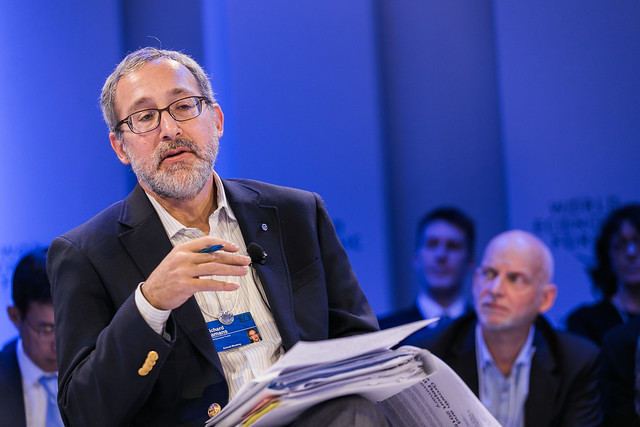Guest Commentary by Richard Samans
The insurgent candidacies of both Sen. Bernie Sanders and Donald Trump in this year’s presidential campaigns exposed a deep fault line in American economic policy: too few voters today have confidence in the country’s economic stewardship over the past generation.
In fact, Americans – by virtue of their support for Sanders and Trump – have issued a direct intellectual challenge to the market-friendly, internationally-open policy model of the past several decades. As wages have stagnated, inequality has grown and technological change and globalization have continued to disrupt Americans’ lives, more people are demanding an economy that generates both wider social participation and broader distribution of its benefits.
Unfortunately, the question of how we can improve not only the quantity of economic growth but its quality – i.e., its bottom-line payoff to society in the form of sustained progress in median living standards – has not been the top focus of U.S. economic policy for a very long time. But if policymakers are serious about restoring opportunity and upward mobility to the vast number of Americans who’ve felt left behind by the seismic shifts in our national and global economy, the task of structural economic reform to address this challenge must become absolutely paramount.
It’s true that U.S. macroeconomic policy has been anything but inert and complacent since the 2008-09 financial crisis, and great credit is due the Federal Reserve, the Obama Administration and Congress for stabilizing the economy, fostering a recovery and reducing the fiscal deficit to a more sustainable level. But the most important domestic reforms of the past twenty years – such as the Affordable Care Act, the Dodd-Frank financial reform, Leave No Child Behind, the Medicare prescription drug benefit and recent energy and climate rules – were neither aimed at nor had the effect of structurally adapting the economy to the challenges posed to American employment, production and living standards by technological change and globalization.
Read the full article here.
Richard Samans is a Managing Director of the World Economic Forum and former Special Assistant to President Bill Clinton for International Economic Policy, and Senior Director, National Security Council, White House


0 Kommentare